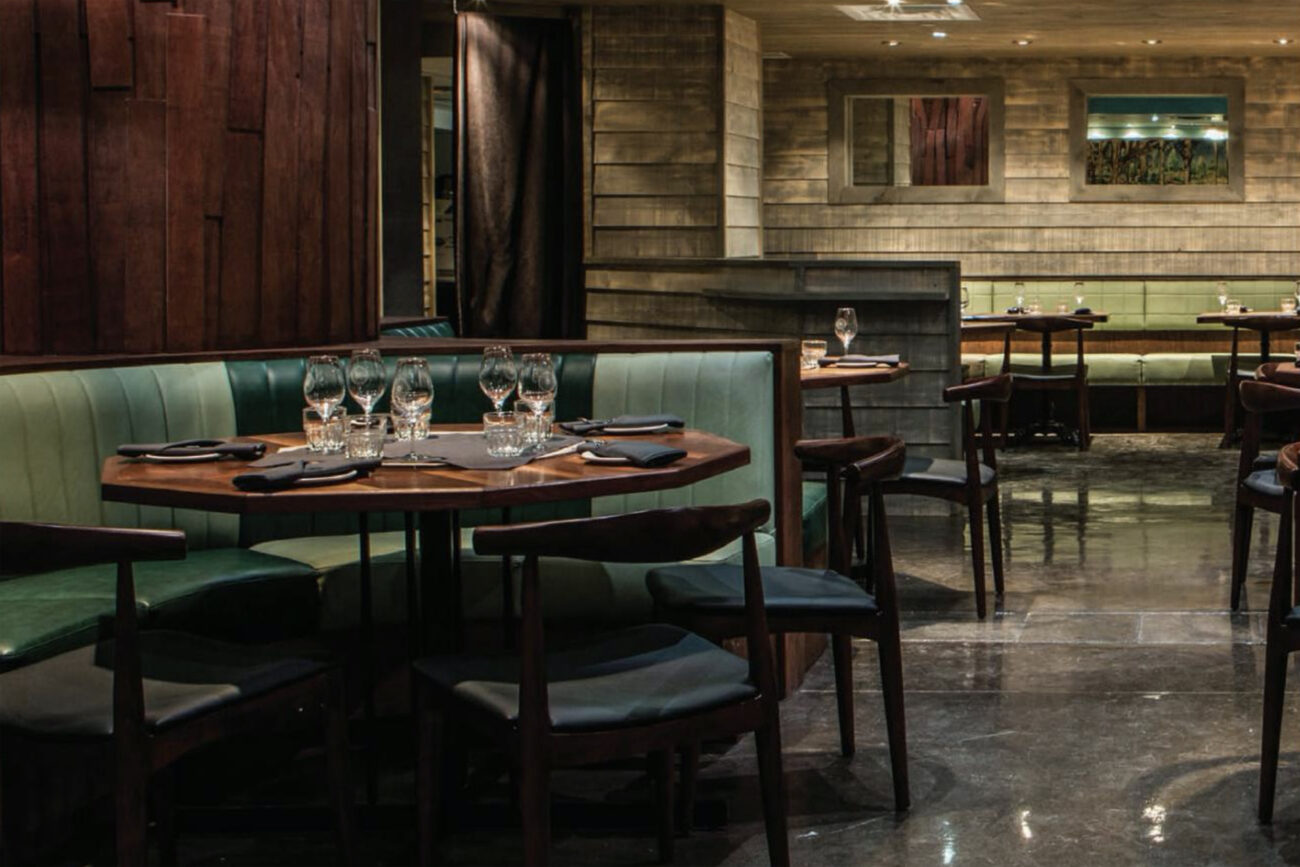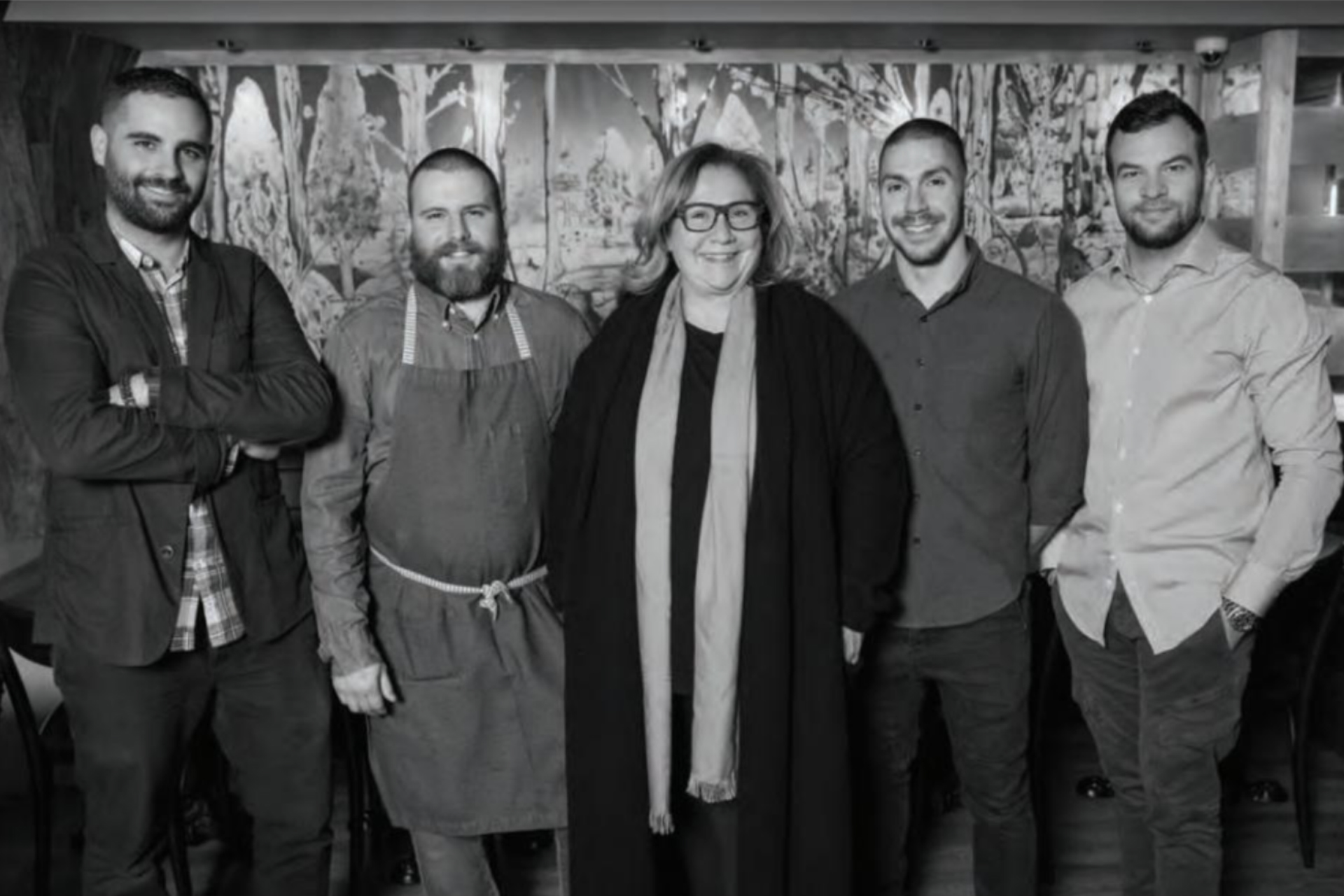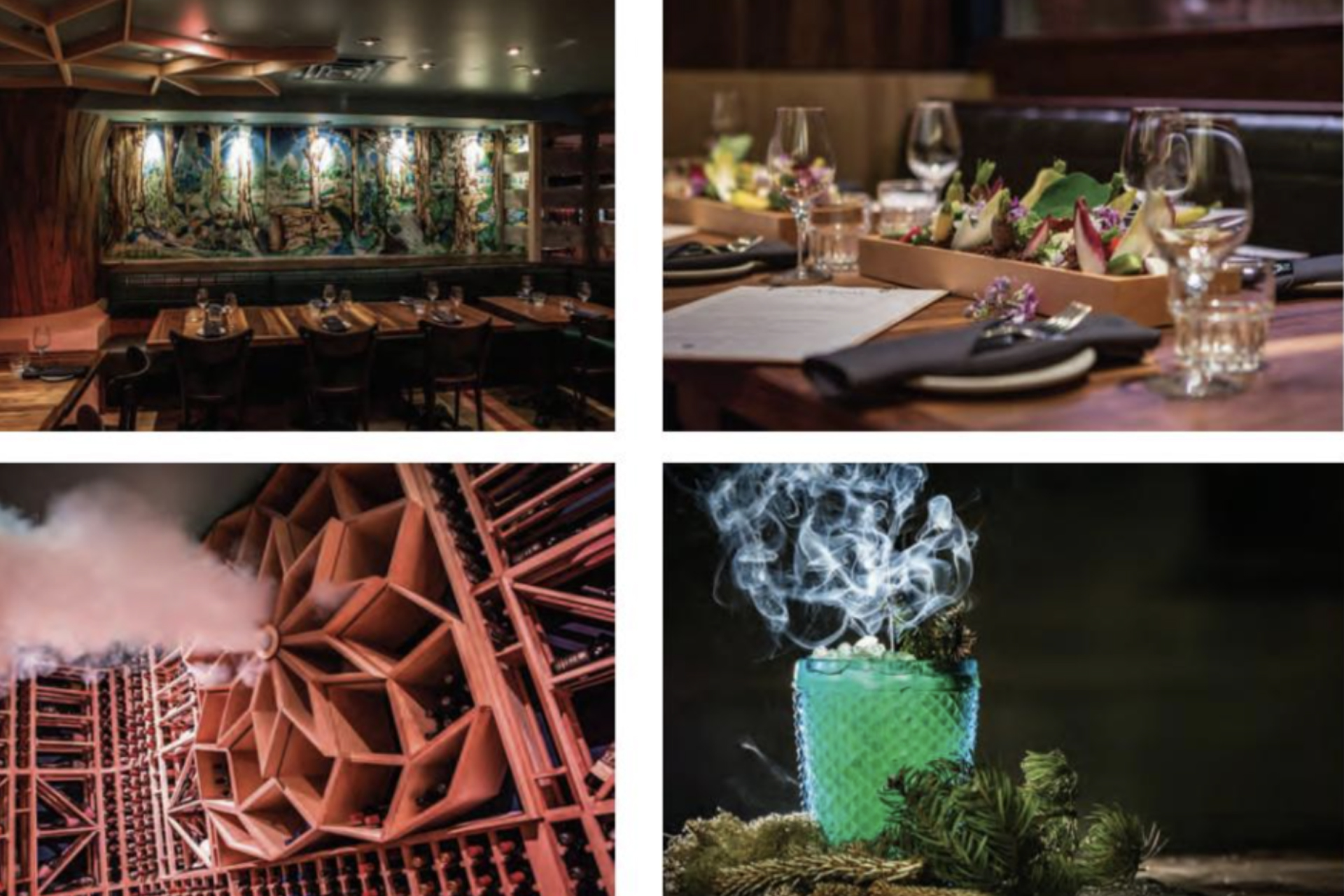A bistro, a bar and an underground forest that turns into a nightclub: Le Soubois invites lovers of good cheer and festive music to a multisensory experience in this unusual fairyland setting, right in the heart of downtown Montréal.
We had barely crossed the restaurant’s doorstep when the projected image of a lake whisked us away. In the wood-panelled stairwell, magnificent, iridescent photos of local products (morels, fiddleheads, edible flowers, etc.) led us toward the ambiance of a warm and stylish cabin. Past the bookshelf, a door allowed a glimpse of a hidden bar. Beside it lay the “sous-bois”, or “underbrush”. Scandinavian style tables arranged around impressive decorative trees whose leaves are simulated by a suspended ceiling invited us to relax and reminded us of the enchanted forests we dreamed about as children.
A dream team
Alexandre Brosseau came up with the concept after a trip to Finland. Brosseau, who owns Speakeasy, a marketing agency, and has spent many years in the restaurant industry (Les Enfants Terribles, Velvet Speakeasy, Flyjin), wanted “to create somewhere for people to have a multi-faced experience combining gastronomy with visual and musical stimuli.” He also wanted to highlight local products. Along with a solid team of Francine Brûlé (Les Enfants Terribles), Guillaume Daly, JP Hadad (Globe), Thomas H. (DJ) and lawyer Christopher Karambatsos, he used the 8,000 square feet available to him to open an elegant bistro that serves local delicacies and transforms into a nightclub in the evening.
A menu focussed on local delights
Inspired by Canadian products, the menu stars fresh seasonal cuisine. “Every dish includes at least one wild ingredient,” explained young chef Guillaume Daly. “We work with various local producers and change with the seasons.” Smoked sturgeon, Boileau venison, sumac and larch add their delicious and unusual flavours to the menu offerings. To accompany your meal, renowned sommelière Élyse Lambert has filled a cellar with 1,800 bottles. The establishment also called on the best mixologists in Montréal, Brendon Baxter, Andrew Whibley and Eric Jensen. Besides serving noon and evening meals, Le Soubois holds a Sunday brunch that puts a lively spin on the classics thanks to Guillaume Daly’s skilful and creative touch.
Rentals
Although the underground forest and the bar are transformed in the evening into hot spots (already popular with a number of celebrities), they’re also the perfect venue for private or corporate events. Several rooms of different sizes are available and can host up to 35 people.
In short, whether for a business lunch or a supper with friends before hitting the town, you should definitely check out Le Soubois.
Lunch from $20 to $30.
Sunday brunch starting at noon.







